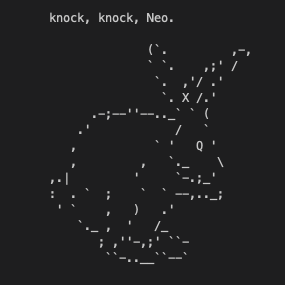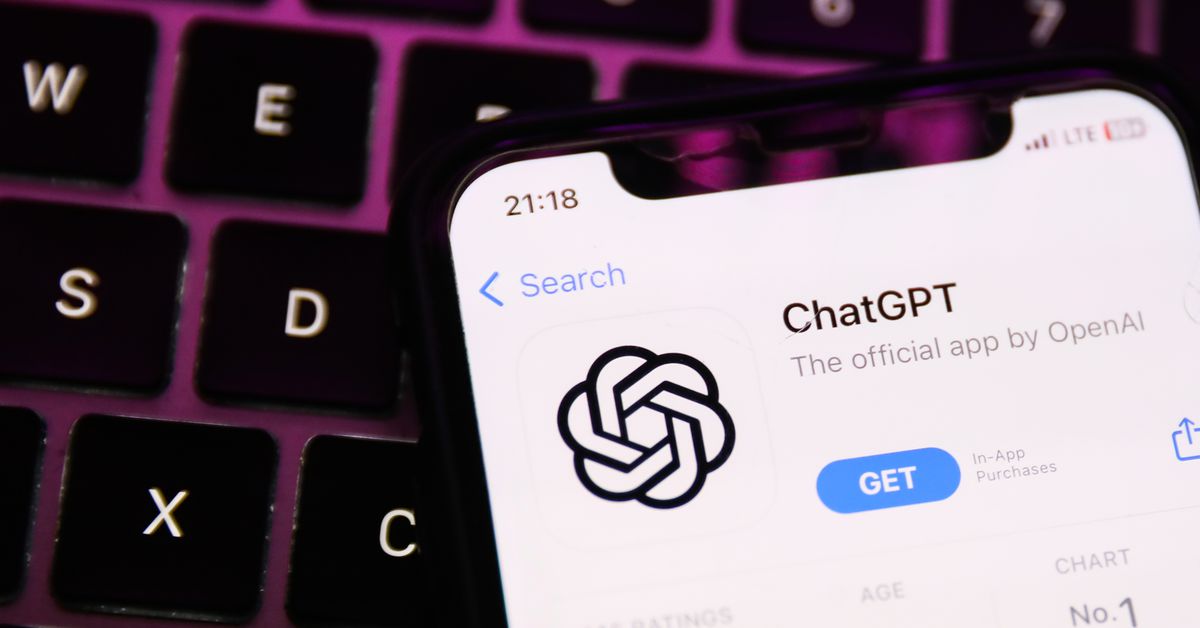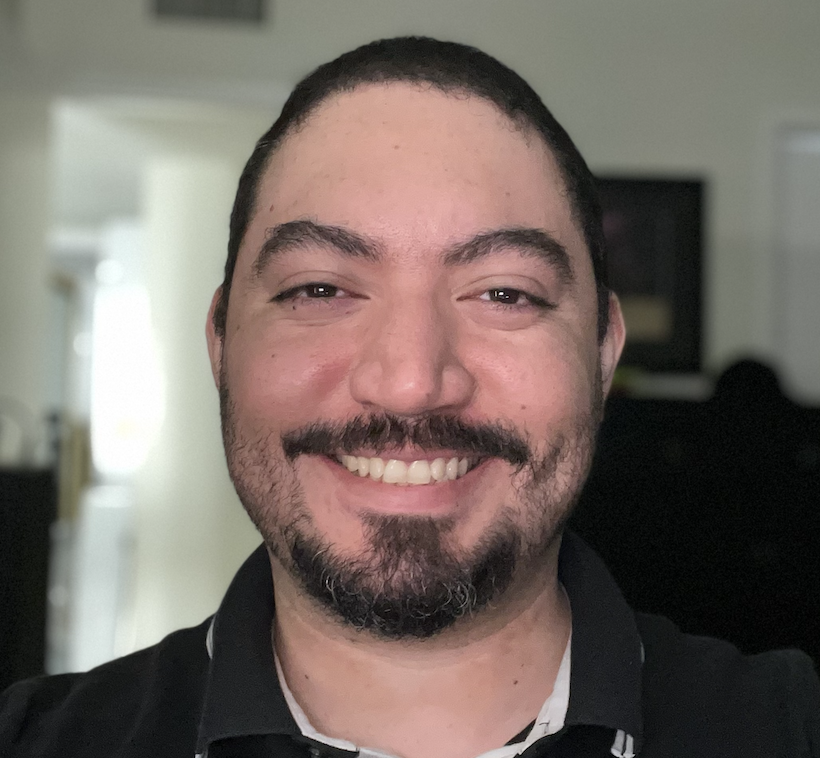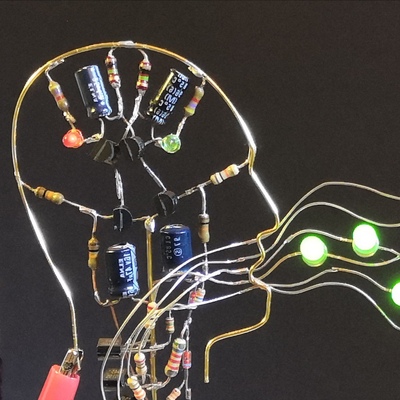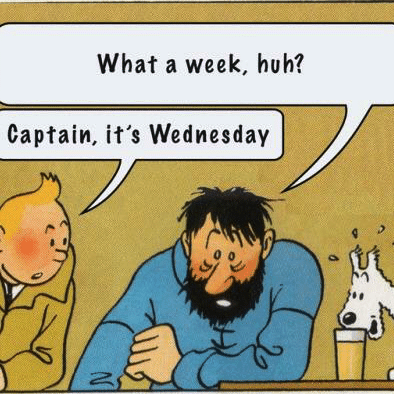I imagine they’ll settle this at hyperspeed. The absolute last thing anyone in the AI space wants to do is set legal precedents (because then they wouldn’t be getting away with half the shit they’re doing).
I wonder how many times they can do this before they run out of money or patience.
Sooner or later they’re gonna run afoul of The Mouse, and then Mickey’s gonna sic the deathstar on them and all these copyright/liability questions are going to get sorted out real fast, and probably not in a way that anybody but Disney will be happy with.
Not gonna lie, this is pretty funny.
Seriously tho, it will be kind of interesting to see how this plays out.
Pretty sure this won’t work. It needs to be made more clear what ChatGPT is and isn’t to people who don’t understand that it’s not a super tool that can read our minds.
This, combined with the case where the lawyer used ChatGPT and it spit out fake cases, is a sitcom version of Black Mirror waiting to be written
by AI.Huh….
I wonder how this will be ruled. Can the company really be held accountable for what the AI creates independently?
Kind of an unexplored area.
Doubtful, courts have already ruled AI isn’t a ‘person’ who can create a copyrighted work, thus a non-person can’t be held liable for defamation most likely.
@ElectronSoup @borari @Spitfire that’s just mathwashing:
https://www.mathwashing.com/The tool cannot be liable itself, obviously, but the creators of the tool and those who wield it absolutely can, depending on specific circumstances.
The “AI” does not “create independently”. Just like a script with some randomness built in does not “create independently”. Somebody designed and built the tool, somebody decided what training data to use, somebody decided to deploy it. These people are liable.
The tool cannot be liable itself, obviously, but the creators of the tool and those who wield it absolutely can…
I absolutely agree with you here. The creators of the tool are responsible for its content. I’m a complete supporter of Section 230 in the US, but I absolutely do not think that sort of protection should apply to companies like OpenAI. Their tool created the content, their tool “published” the content, they are responsible for that content.
@rysiek @ElectronSoup @borari @Spitfire
What about OpenAI claiming that their Terms of Service which all ChatGPT users have to sign up to, absolves themselves of all responsibility that their tools have to generate accurate results?And if LLM is just “spicy autocomplete” should the makers of Swiftkey be held liable for accusations it might generate when a user types out a sentence by repeatedly pressing next-word?
@bornach @ElectronSoup @borari @Spitfire “your honor, I am not liable for the manslaughter in this car accident here because I wrote my own terms of service for my own car that absolve me from manslaughter”
> And if LLM is just “spicy autocomplete” should the makers of Swiftkey be held liable for accusations it might generate when a user types out a sentence by repeatedly pressing next-word?
If they published that on a website pretending to be search? Sure. But they don’t.
If so, I think that sets an interesting precedent that could be referenced in copyright claims over AI generated art… For instance, if a Midjourney user generating an image of Mickey Mouse meant Disney could sue Midjourney directly…
I’m not sure if it’s just copyright to be honest. Hosting companies are free of blame from their users as long as they respond to reports, but if they preemptively moderate content their legal position becomes more precarious because it implies there is actually some kind of explicit vetting going on. OpenAI clearly does vetting of their own (if you can trick the bot into cursing you out it’ll remove the message and pretend there was an error) so it’s possible that the failed preemptive moderation can be relevant here.
It’s likely were going to find out in a while.
From what I’ve read, the judgment could go either way. No matter what the legal conclusion will be, the impact will be huge.
In terms of defamation I think OpenAI will be in the clear. There’s a full screen popup that tells you their program lies all the time and statements it makes cannot be taken as facts. There’s also no (other) human involved with content generation. You won’t be winning a defamation suit against the company behind your phone’s autocomplete, and super fancy autocomplete is really all ChatGPT really is.
If there is a legal risk for OpenAI, I bet it’s copyright. All of the data the model is trained on, websites, blog posts, news articles, video transcriptions, you name it, is protected by copyright (assuming they pass the originality threshold). AI companies have used the fact there are copyright exemptions for research purposes to build their models, but now that they’re turning into businesses their models repeating someone else’s copyrighted work may suddenly complicate things, legally.
Japan was (to my knowledge) the first country to officially rule on AI generated images with regards to copyright… They deemed it fair game to use copyrighted material in training, but subject to copyright infringement if the AI generates something too close to copyrighted material. It’ll be interesting to see where other countries weigh in on this issue.
Theoretically, someone has to be considered responsible for what an AI does. Especially now that we’re seeing businesses start using AI for things like talking to customers… If they had full immunity against lawsuits for things their AI says, that’d set a really bad precedent; we’ll just have to see where the line gets drawn.
Japan’s case is very interesting already, but if a large economy comes out with a more restrictive ruling then that’s the law most international companies will end up sticking by. Disney isn’t going to risk losing copyright in the rest of the world just because Japanese law would permit them to use AI, for example.
I agree that this would be a bad precedent. Personally, I think the way AI companies have gotten away with things that would obviously be crimes if they couldn’t hide behind their magical neural networks has become too much of a problem to ignore.
OpenAI’s defence would have to be that it’s not reasonable to believe the facts spoken by ChatGPT are truthful or with merit. I’m also not sure if this would fly as it’s not purposeful conduct by the defendant. Will be interested to see how the court weighs it.
deleted by creator
